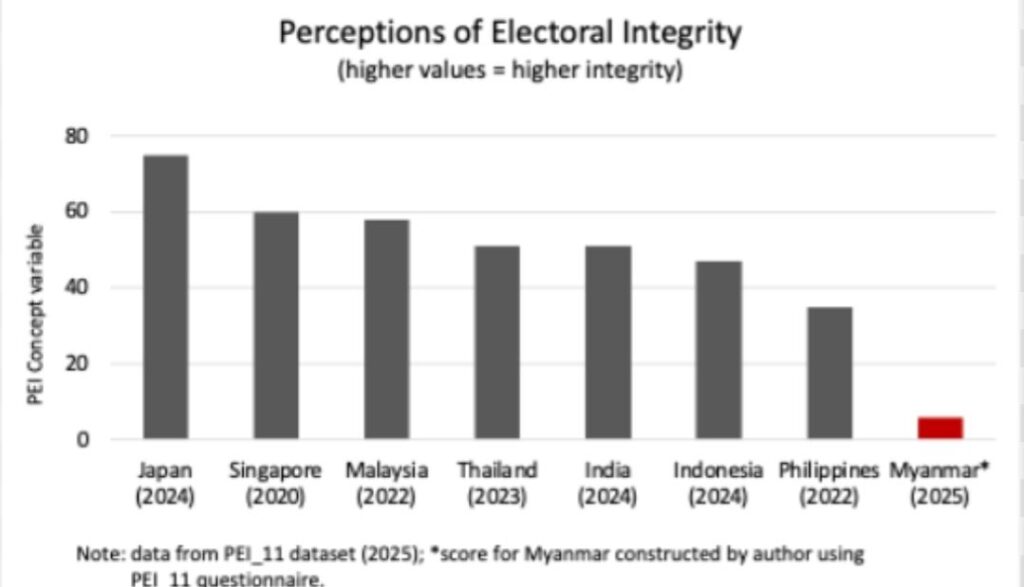
Myanmar’s Wartime Elections: What to Expect
Myanmar’s military regime plans to hold national elections in late 2025 or early 2026. But these polls are unlikely to meet the basic standards of legitimacy or reflect the will of the people.
The elections are being organized during an ongoing civil war, with much of the country outside of military control. Key opposition parties like the National League for Democracy (NLD) have been dissolved, and large parts of the population — especially in resistance-held areas — won’t be able to vote. Political repression remains severe, with thousands of activists and journalists imprisoned.
While some foreign actors like China and Thailand see the elections as a path to stability, and a few domestic groups hope they might open political space, most experts and citizens are deeply sceptical. Unlike flawed elections elsewhere in the region, Myanmar’s planned vote fails every major test of democratic credibility.
If held, the polls will likely deepen divisions rather than solve them. Any resulting parliament will be dominated by military-aligned parties and exclude large sections of the country. This could worsen the conflict and further split Myanmar into a central military zone and autonomous ethnic regions.
Despite this, the elections may still go ahead. In that case, the key question is not whether they are legitimate — they clearly are not — but how different groups respond. Elections won’t end the war, but they may shape the next phase of Myanmar’s ongoing struggle for a political future.
Related posts:
 Starlink Fuels Myanmar Scam Networks, U.S. Demands Geoblock
Starlink Fuels Myanmar Scam Networks, U.S. Demands Geoblock
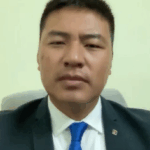 Dr. Sasa Resigns from NUG, Restructuring Expected Inside Shadow Government
Dr. Sasa Resigns from NUG, Restructuring Expected Inside Shadow Government
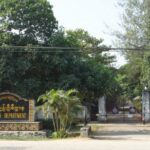 Myanmar Junta Pardons 3,085 Political Prisoners Ahead of Elections
Myanmar Junta Pardons 3,085 Political Prisoners Ahead of Elections
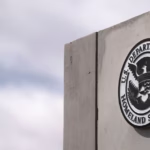 U.S. Ends Temporary Protected Status for Myanmar Nationals
U.S. Ends Temporary Protected Status for Myanmar Nationals
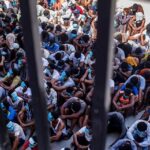 𝗛𝗼𝘄 𝗠𝘆𝗮𝗻𝗺𝗮𝗿’𝘀 𝗖𝘆𝗯𝗲𝗿-𝗦𝗹𝗮𝘃𝗲𝗿𝘆 𝗡𝗲𝘁𝘄𝗼𝗿𝗸𝘀 𝗘𝘅𝗽𝗹𝗼𝗶𝘁 𝗬𝗼𝘂𝗻𝗴 𝗔𝗳𝗿𝗶𝗰𝗮𝗻𝘀 𝗔 𝗡𝗲𝘄 𝗣𝗵𝗮𝘀𝗲 𝗼𝗳 𝗮𝗻 𝗘𝘅𝗽𝗮𝗻𝗱𝗶𝗻𝗴 𝗖𝗿𝗶𝘀𝗶𝘀
𝗛𝗼𝘄 𝗠𝘆𝗮𝗻𝗺𝗮𝗿’𝘀 𝗖𝘆𝗯𝗲𝗿-𝗦𝗹𝗮𝘃𝗲𝗿𝘆 𝗡𝗲𝘁𝘄𝗼𝗿𝗸𝘀 𝗘𝘅𝗽𝗹𝗼𝗶𝘁 𝗬𝗼𝘂𝗻𝗴 𝗔𝗳𝗿𝗶𝗰𝗮𝗻𝘀 𝗔 𝗡𝗲𝘄 𝗣𝗵𝗮𝘀𝗲 𝗼𝗳 𝗮𝗻 𝗘𝘅𝗽𝗮𝗻𝗱𝗶𝗻𝗴 𝗖𝗿𝗶𝘀𝗶𝘀
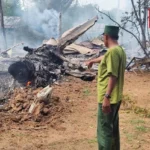 REBELS DOWN MYANMAR JF-17 FIGHTER JET IN ATTACK
REBELS DOWN MYANMAR JF-17 FIGHTER JET IN ATTACK
